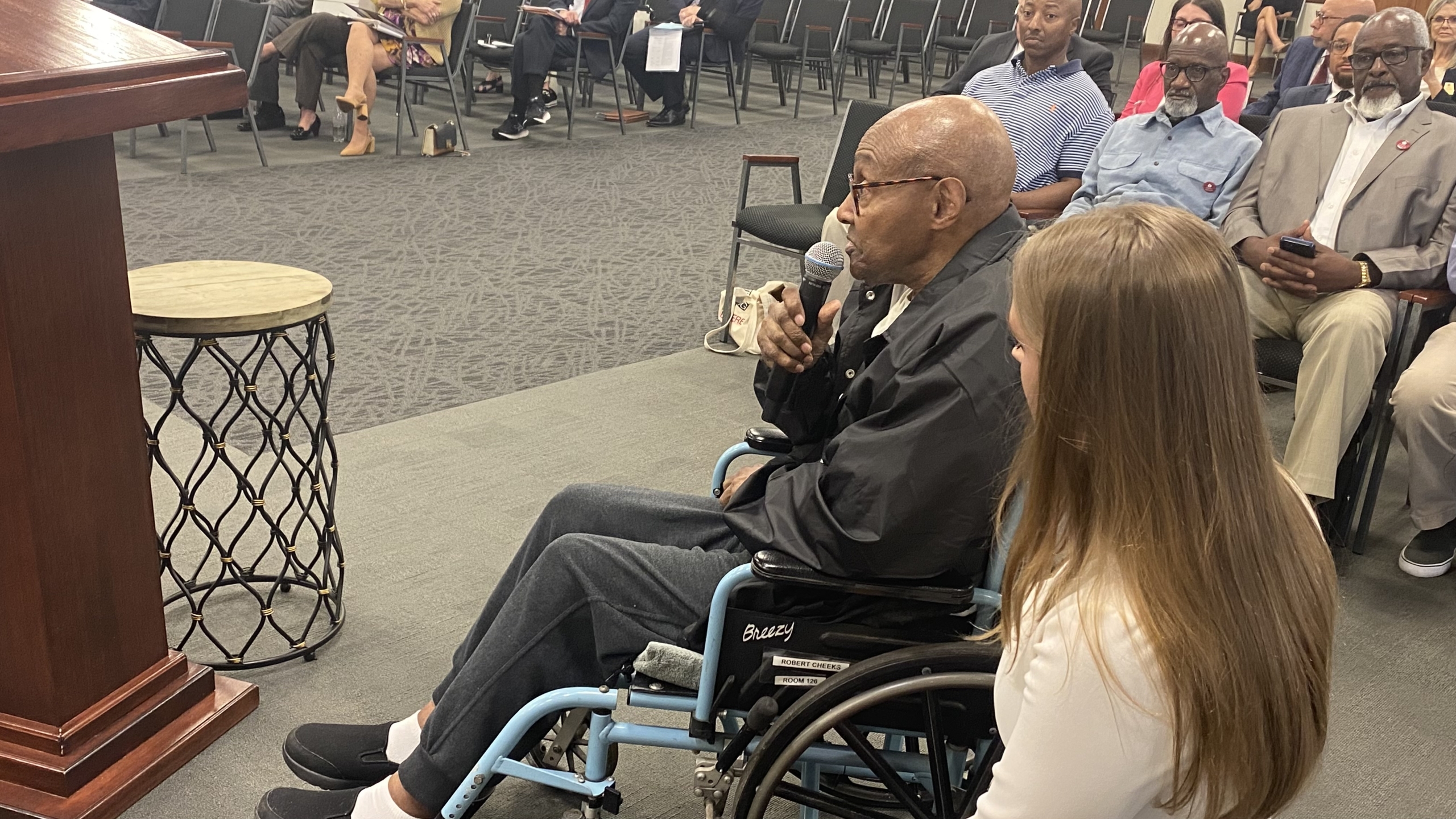Over the past several years, Alabama Appleseed has argued successfully for the release of 12 men sentenced to life without parole under Alabama’s Habitual Felony Offender Act.
Some of those men were present Wednesday as the House Judiciary Committee considers a bill that would create a review process for many more men just like them.
“Regardless of all I’ve done, I can’t forget the guys that I left behind,” said Ronald McKeithen, who served 37 years in prison before Appleseed helped him be released. “Those guys are dying; the bodies are stacking up and coming out.”
HB229, sponsored by Rep. Chris England, D-Tuscaloosa, would create a review process for the possible resentencing or release of certain individuals serving life without parole. To be eligible for this process, the individual must not have committed a crime that involved serious physical injury to a victim, they must be at least 50 years old and must have served at least 15 years in prison.
If passed, England projects up to 250 people could be released from the prisons if the bill is approved.
Carla Crowder, executive director of Alabama Appleseed, said that space would go even further though when considering how many people serving one- to five-year sentences could get a bed during the lifetime of an individual being released.
“I could give you a lot of stats and data about why this is a waste,” Crowder told press at a conference outside the Statehouse. “But I don’t have to give you all of that data because here we have living proof of why this law doesn’t make any sense. These men were sentenced to life without parole, which means the State of Alabama said ‘You’re too dangerous to ever live outside of prison again. You’re too dangerous to go to church, hold a job, to hug your grandkids, to eat at a restaurant.’
“Well, obviously, the State of Alabama was wrong, was dramatically wrong about these lives and the lives of many other people who we’ve represented over the past three years and there are hundreds more in our unconstitutional, violent prisons who deserve the same second chance.”
Former U.S. Congressmen Spencer Bachus lent his support to the bill, telling his story of forming a relationship with incarcerated man John Manley, who remains in prison today after being convicted under the Habitual Felony Offender Act.
Manley had prior theft convictions from when he was 18, and then when he was 24 burglarized a home and stole a weapon, allowing the State to charge him with armed burglary.
“This has been a nightmare for me, particularly the frustration of hearing every year that the Legislature is going to do something,” Bachus said. “I love John Manley and I hate what this country and this state has done to him.”
Bachus is the former chair of the Alabama Republican Party and the first elected Republican Senator in the state, but he said this bill isn’t about Republicans and Democrats.
He appealed to a Bible verse, Micah 6:8, referenced in the District Attorneys Association own creed, which says to act justly, but also to “love mercy.”
“Mercy is a part of justice,” Bachus said.
The House Judiciary Committee also heard from Robert Cheeks, who served his life without parole sentence until he was 79 and in the infirmary in Donaldson Correctional Facility, and Robert Reid, who met one former incarcerated man Joe Bennet while involved in ministry at Donaldson and now employs him in his business.



















































